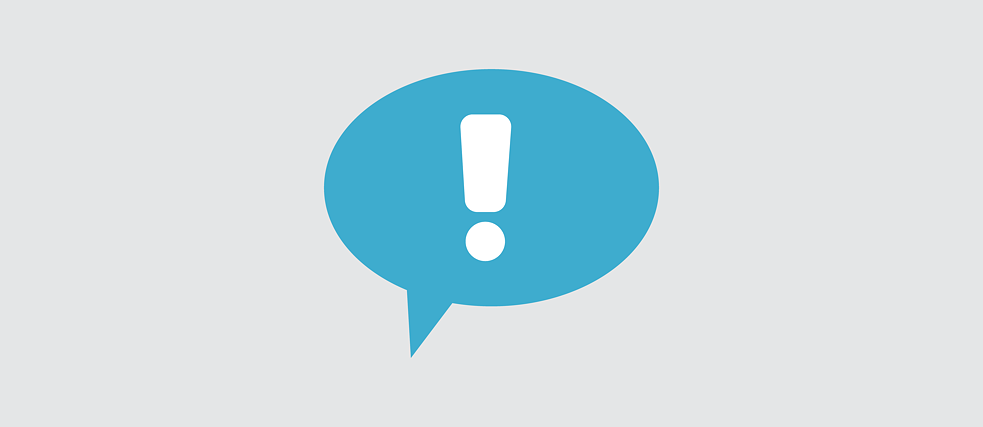Word! The Language Column
Punctuation

In terms of their actual extent and distribution in the sentence structure, they are the very smallest units: the punctuation marks. But even a tiny comma can completely change the meaning of a sentence.
Was that semi-colon some kind of flirty wink or just bad punctuation?
(Azadeh Aalai)
I know very few German people who do not consider punctuation to be extremely important. Yes, in Britain we do have the wonderful publication “Have You Eaten Grandma?: Or, the Life-Saving Importance of Correct Punctuation, Grammar, and Good English” by Gyles Brandeth. And yes, in English there are established ways to use commas. But to be honest most Brits consider them to be – and here I quote Captain Barbossa of “Pirates of the Caribbean” fame – “more what you call guidelines than actual rules”. (This is not actually true, there are rules. But only the strictest grammar lovers really know what to do with commas in English. The rest of us usually put them in a sentence, whenever we feel it would be good to take a breath). German punctuation is altogether a much more serious matter.
Comma saves Grandma
Let’s stick with the comma. The joke about how it can save lives also works in German. Consider the old favourite: “Komm, wir essen, Oma!” versus “Komm, wir essen Oma!” (basically, the first sentence invites Grandma to come to eat, whereas the second invites others to come and eat her). And commas are always used in relative clauses. So, for example, wherever additional information is given about a noun, this is always set apart in commas. In English this is not necessarily so. (Dear hard-core grammar enthusiasts, I am of course referring to restrictive and non-restrictive relative clauses here). There are many comma rules in the German language, and although I have not mastered them fully, I am grateful for their clarity and feel generally confident that I could use them correctly – the same cannot be said for my use of commas in written English.I do have one complaint though. What is up with German numbers? Why is eight Euros and ninety-nine cents written like this – 8,99 €? Why do German numbers have commas, where in English full stops are used? What is the logic behind writing the number one thousand like this – 1.000? How did this development arise? And is there any chance this can be overturned? Almost forty years since I first learnt this, I am still outraged. And I still regularly confuse my German online bank account.
Use more emojis!
Above all, navigating between German and English has resulted in me coming to the realisation that punctuation is overrated. Of course, it is important. But there are individuals who will never master grammar rules or spelling, and they should not be ridiculed for their participation in written exchanges (I’m specifically looking at you, dear social media commentator, who regularly focusses on form and not content. Dyslexic people say your ableism is showing.). But even a sentence which is perfectly punctuated will lack the often essential information, which is provided by intonation, body language and context. Those who have a penchant for unambiguity may be lulled into a false sense of security by well-placed commas. Indeed, I really wonder if emojis are far more important for written communication, than we currently give them credit for? I for one would love to see emojis also become a part of grammar – in English as well as in German.��Conclusion
To take a few nouns, and a few pronouns, and adverbs and adjectives, and put them together, ball them up, and throw them against the wall to make them bounce. That's what Norman Mailer did. That's what James Baldwin did, and Joan Didion did, and that's what I do - that's what I mean to do.(Maya Angelou)
As a literary writer and essayist, I do have a lot of fun with bending and shaping language, in order to express ideas and thoughts which many people have, but have yet to find words for. Grammar is a tool for me, with which I can make my language more precise, and I am utterly grateful for it. However, I truly believe that the real magic of writing occurs when you know the rules of a language well enough to break them. This is when sparks fly.
I hope you have enjoyed reading my columns on (German) grammar, even half as much as I have enjoyed writing them.
Word! The Language Column
Our column “Word!” appears every two weeks. It is dedicated to language – as a cultural and social phenomenon. How does language develop, what attitude do authors have towards “their” language, how does language shape a society? – Changing columnists – people with a professional or other connection to language – follow their personal topics for six consecutive issues.